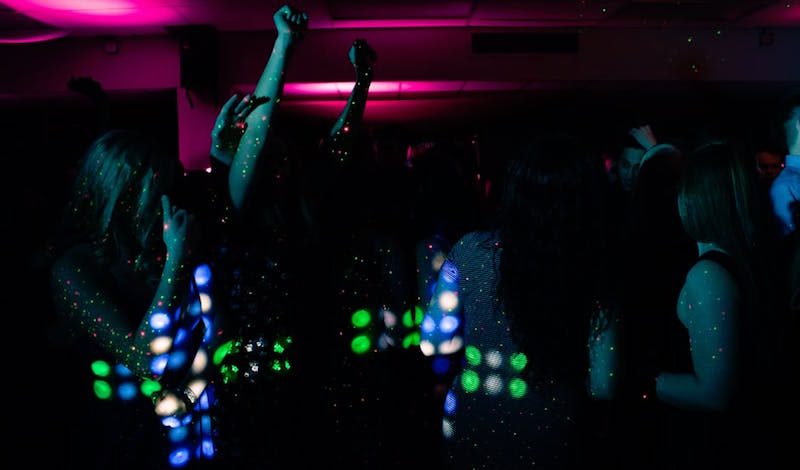Turned away from a Canal Street club, Claudia Carvell calls time on outdated door policies.
A close friend of mine approached me a few weeks ago and asked me if I'd take her and a friend to Canal Street, Manchester's gay-town, for a night out. Her friend had recently come-out after five years of secrecy, and just wanted to start enjoying being part of a community of people who could relate to her experience and who were comfortable with their sexuality. On top of that, she felt like it was finally time to get out there and meet some girls.
The night came and the three of us were getting ready. We are all brunettes with mid to long hair. My friend was dressed in shorts, tights and trainers. Her friend was dressed in jeans, boots and a crop top. I was dressed in shorts, a crop top shirt and trainers. They had fake- eyelashes on. There was potentially an ounce of glitter involved. I might have been accompanied by a shoulder-bag. I bet you're wondering why this is relevant. Why would you care about our fashion sense, (or lack of in my case)? Well I would have said the same until, an hour, or two, later, we were turned away from a bar central to Manchester's gay scene.
As a regular to Canal Street, but specifically to that bar, it hadn't occurred to me that we wouldn't get in. We were well-dressed, not (yet) drunk, and all well above the legal age. The bouncer's first question, after looking my friend up and down was 'Are you girls members?' As I said, I was a regular at this bar so I was already aware that you couldn't become a member, this was merely an excuse used to "legitimately" turn away groups of straight men, or hen/stag party crowds. The idea of this policy had never bothered me before because after all, gay clubs were created as safe places for the LGBTQ community to spend time together, in a safe and comfortable environment. However, despite being part of that community, I was now being made to feel uncomfortable by the protocol that was intended to do the opposite.
I made it clear that I was a regular, and that my friends were not, but because one was from Sheffield, and the other had not been to Canal Street before. Both truths. He said if I personally wanted to get in, I'd have to choose between my friends and leave the other behind otherwise we'd all be turned away. I clarified that two of the three of us were in fact gay: that he was turning away gay people from a gay-bar for no apparent reason. He shrugged his shoulders and we left.
I won't pretend I haven't heard of this happening to people before at this specific bar, but I always assumed that being gay, being their intended cliental, being part of the community that the bar exists for, would be enough. Unfortunately, this reminded me of an experience from the previous year, when, in a gay club in Birmingham, a girl asked me where my boyfriend was. Initially I laughed, my ego interpreting her "banter" as a come-on. When I smugly replied that I didn't have one, she asked me again, and again, and again. I was confused before I realised the look on her face was aggressive, not inviting, and her friends were standing nearby, laughing in support.
In reality, we've all been there, myself included. We've all made assumptions about peoples sexuality based on what they wear, or how they wear their hair, but these assumptions ultimately proliferate the idea that you have to look or behave a certain way to "be gay"; that you have to establish yourself as a certain "type" of gay, and stick to it. We belong to a community that's supposed to promote the acceptance and equality of multiple different ways to be and love. The message that was delivered to the girl I took out last week by the bar that turned her away was that, even though it had taken her years to find the courage to claim her own identity and act on her desires, it wasn't enough. She wasn't playing the part right, and she wouldn't be taken seriously as a lesbian until she did.
Point is, things need to change. The chances of me getting through to a nationwide gay-bar about their playlists, let alone their policies, when no doubt they've been challenged before, is slim. But to the members of our community, this unnecessary discrimination surrounding what queer identities look like is damaging. Nobody deserves to have any aspect of their identity undermined because they don't look the way you assume they should.
Only reading DIVA online? You're missing out. For more news, reviews and commentary, check out the latest issue. It's pretty badass, if we do say so ourselves.
divadigital.co.uk // divadirect.co.uk
